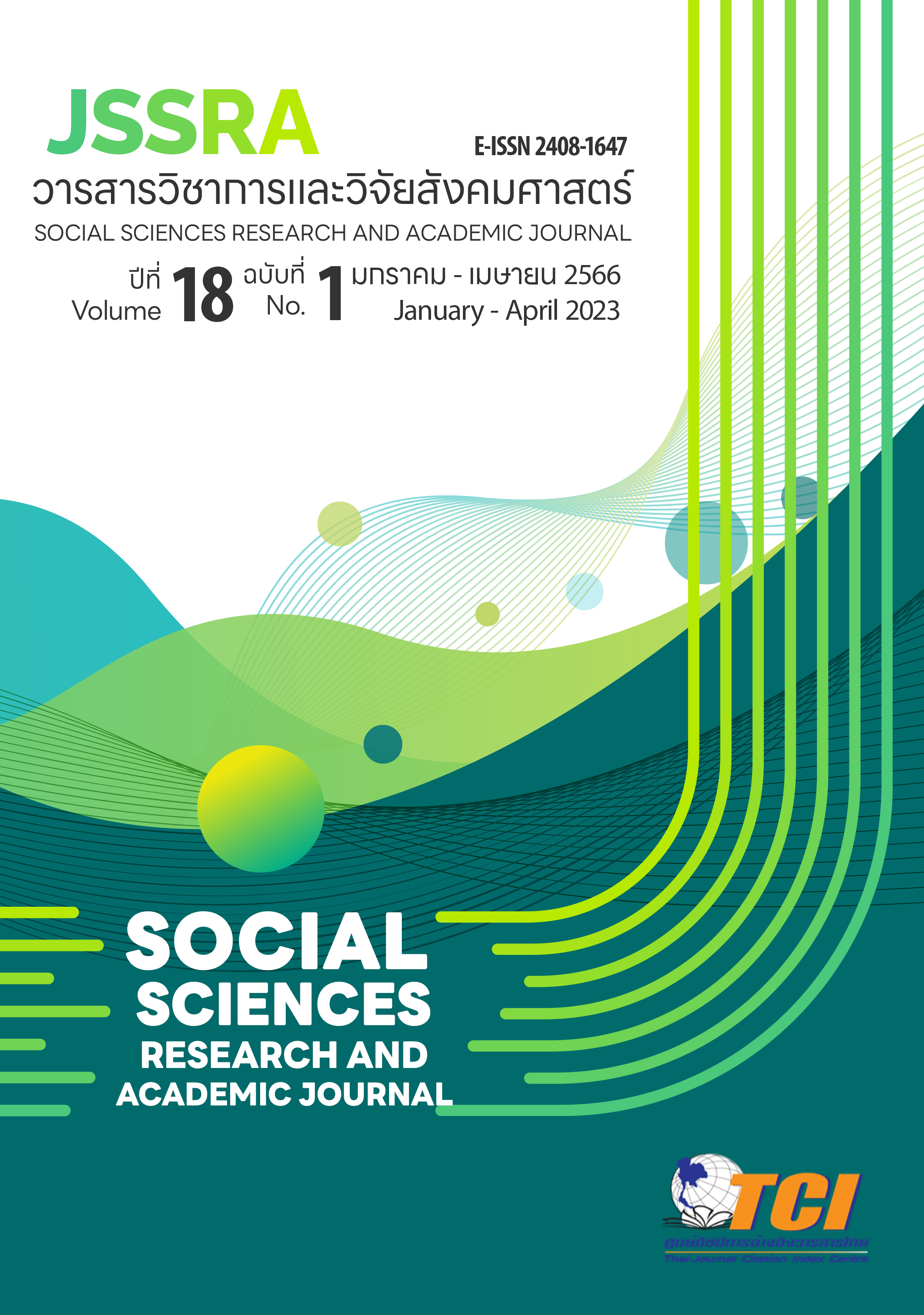The Effect of Existential Group Counseling on Flow of Undergraduate Students
Main Article Content
Abstract
This study utilized a quasi-experimental research design to examine the impact of existential group counseling on the flow of undergraduate students. Twenty first-year health sciences students from Burapha University, Chonburi, who began their studies in 2019 with flow scores below the 25th percentile were included in this study. Ten students were assigned to each group (the experimental group and the control group). The instruments were the flow questionnaire and existential theory group counseling program. The study was divided into 3 phases: the pre-experiment phase, the post-experiment phase, and the follow-up phase. The data were analyzed using repeated-measures analysis of variance, with one between-subjects variation and one within-subjects variable. The Bonferroni Method was used to test for pair differences. The results revealed that existential group counseling can enhance flow of undergraduate students.
Article Details
References
ดวงใจ วัฒนศิลป์. (2558). ปัจจัยทำนายภาวะซึมเศร้าของนักศึกษาสาขาวิทยาศาสตร์สาขาสุขภาพ. วารสารคณะพยาบาลศาสตร์ มหาวิทยาลัยบูรพา, 23(4), 32-33.
พลสัณห์ โพธิ์ศรีทอง. (2557). การจัดการเรียนการสอนในระดับอุดมศึกษา. เอกสารเพื่อประกอบการบรรยาย เรื่อง “ภารกิจอุดมศึกษาในศตวรรษที่ 21. ได้จาก http://qa.eau.ac.th/document_data/open%20souce/polsun.ppt. สืบค้นเมื่อ 2 ธันวาคม 2562.
ศุภิสรา สุวรรณชาติ และวิไลพร รังควัต. (2555). ปัญหาและความต้องการด้านการเรียนของนักศึกษาโครงการผลิตพยาบาลวิชาชีพเพิ่มเพื่อแก้ไขปัญหาในพื้นที่จังหวัดชายแดนภาคใต้. วารสารวิทยาลัยพยาบาลบรมราชชนนี นครราชสีมา, 18(2), 29-31.
สุดธนู ศรีไสย์. (2551). สถิติประยุกต์สำหรับงานวิจัยทางสังคมศาสตร์. (พิมพ์ครั้งที่ 3). กรุงเทพฯ: คณะครุศาสตร์ จุฬาลงกรณ์มหาวิทยาลัย.
อนงค์ วิเศษสุวรรณ์. การปรึกษากลุ่ม. (2554). เอกสารประกอบการเรียนการสอน วิชา 416621 การปรึกษากลุ่ม). ชลบุรี: คณะศึกษาศาสตร์ มหาวิทยาลัยบูรพา.
Balkis, M., & Duru, E. (2007). The Evaluation of the Major Characteristics and Aspects of the Procrastination in the Framework of Psychological Counseling and Guidance. Educational Sciences: Theory & Practice, 7(1), 376-85.
Bowers, J. (2016). Flow, Hypnotizability, Absorption and Neuroticism in a College Student Population. Doctor of Psychology, Baylor University.
Christina, M. (1981). The measurement of experienced burnout. J Organ Behav, 2(2), 99-113.
Corey, G. (2012). Theory & practice of group counseling. Belmont: Brooks/ Cole Publishing Company.
Csikszentmihalyi, M. (1990). Flow: The psychology of optimal experience. New York: HarperPerrennial.
Csikszentmihalyi, M. (2000). The contribution of flow to positive psychology. Philadelphia: Templeton Foundation Press.
Csikszentmihalyi, M. (2014). Flow and the Foundations of Positive Psychology: The collected works of Mihaly Csikszentmihalyi. Netherlands: Springer Publishing.
Jackson, S., Eklund, B., & Martin, A. (2012). The FLOW Manual: The manual for the Flow scales manual, sampler set. California: Mind Garden.
Kim, R. (2016). The concept of flow: Acritical review of the literature within music, sports, & education. Doctoral dissertation, Doctor of psychology, Biola University.
Mendelson, N. (2007). The functional mediation of flow between achievement anxiety, academic procrastination, and academic performance. Doctoral dissertation, Doctor of Philosophy, Fordham University.
Sue J. (2016). Flowing with mindfulness: Investigating the relationship between flow and mindfulness. Mindfulness in positive psychology. The science of meditation and wellbeing. United Kingdom: Routledg: Taylor & Francis Group.
Winner, B., Mochels, D. R., & Michels, K. (1991). Statistical principles in experimental design. New York: McGraw-Hill.


